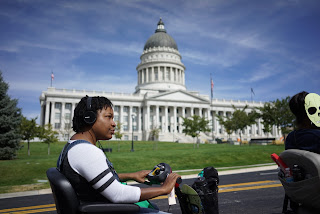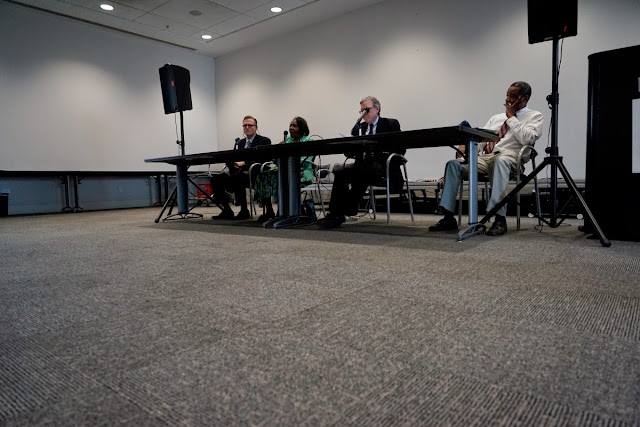Clift Notes: Absentee Voting in Tennessee
By Christina Clift
At the age of eighteen every American is granted the right to vote in local, state, and federal elections. It is a right that hundreds of thousands of people have fought, marched, and died to defend. However, people with disabilities may be excluded from voting. The Americans with Disabilities Act was enacted thirty-four years ago and requires that every voting option be accessible to voters with disabilities so that all voters can vote independently and privately whether in person or by mail.
Since the ADA, the disability community has fought for accessible polling locations, accessible voting machines, and assisted in training polling officials. Things have gotten better. Yet, voters with print disabilities in Tennessee still do not have the ability to cast their absentee ballot in private or independently. In Tennessee absentee voting still remains as inaccessible today as it was fifty years ago. Shocking Right?
But there is hope on the horizon thanks to proposed legislation by the National Federation of the Blind Tennessee. The purpose of the Print Disability Absentee Ballot Accessibility Act is to increase voter access for people who have print disabilities. In-person voters consistently face barriers such as malfunctioning accessible voting machines, with polling officials lacking the ability to fix them or make even minor corrections. In rural areas transportation to the polls is challenging or nonexistent, so getting to a polling site is sometimes impossible.
The Tennessee voting by mail system is also inaccessible. Blind voters and other people with comparable print disabilities are unable to mark their paper ballots independently. As a result, people with print disabilities must rely on others to mark their ballots, giving them no privacy, an unsecure vote, and very little independence. This violates the rights afforded by the ADA. In today’s political climate in which every vote matters would you want to have someone else marking your ballot without being able to see that it was done correctly? Do you want someone else to know who you voted for, especially if it is different from theirs? Privacy and independence are a critical part of each citizen's vote.
The Solution:
The Print Disability Absentee Voting Act will allow people with print disabilities to receive an electronic delivery of their mail-in ballot just like our veterans serving overseas.
Tennesseans with print disabilities will be able to fill out their accessible ballot independently using large print, screen readers, or other accessible means, ensuring that their ballots truly point to the candidate they wish to vote for.
Then, the ballot will be printed out and mailed to their local voting district.





